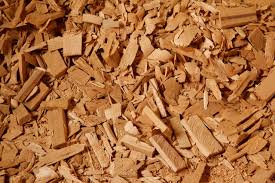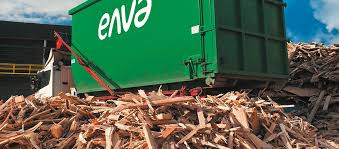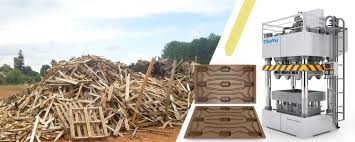![]()
If you’ve landed on this article page, you’re probably searching for a
good business idea—an idea that’s light on the pocket but heavy on
returns, promising both a fulfilling journey and potential profit.
|
How
To Start A Wood Recycling Business in Nigeria
The Wood Recycling Business in Nigeria
involves the sustainable recovery and processing of wood
waste for various applications. This business requires thorough
research to understand the types of wood waste available,
suitable recycling methods, and potential markets. The setup
period may vary depending on the scale and complexity of
operations, involving tasks such as securing permits, procuring
equipment, and setting up processing facilities.
The Wood Recycling Business in Nigeria
plays a pivotal role in sustainable waste management,
resource conservation, and environmental preservation. With the
growing emphasis on eco-friendly practices, wood recycling has
gained significant traction in recent years. In Nigeria , the
need to manage wood waste is evident due to the rapid
urbanization, construction projects, and industrial activities
that generate substantial wood byproducts.
Wood Recycling Businesses in Nigeria
have the potential to contribute significantly to
economic growth. The export opportunity from Nigeria is
substantial, as reclaimed wood and repurposed lumber are in
demand in international markets. The European market, for
instance, has a strong preference for eco-friendly wood
products, creating a potential avenue for exporting recycled
wood.
The production yield from raw materials in wood recycling
depends on factors such as the quality of wood waste, recycling
techniques employed, and the intended products. Common wood
recycling processes include chipping, grinding, and
reconstituting wood waste into new products like mulch,
particleboard, or biomass fuel. Efficient recycling practices
can yield high-quality products while minimizing waste.
Mulch Production: Recycled wood is often turned into mulch,
which helps improve soil structure, retain moisture, and prevent
weed growth in gardens and landscapes.
Particleboard Manufacturing: Wood waste can be transformed into
particleboard, used for furniture, cabinets, and building
materials, reducing the need for new timber.
Biomass Energy: Wood recycling produces biomass fuel, used for
generating renewable energy and reducing dependence on fossil
fuels.
Compost Additive: Ground wood waste enriches compost piles,
enhancing nutrient content and accelerating decomposition.
Art and Craft Supplies: Recycled wood pieces can be used for
artistic creations, crafting, and DIY projects.
Construction Materials: Reclaimed wood finds use in
construction, providing a rustic aesthetic in interior and
exterior design.
Pallets and Crates: Recycled wood is utilized to create pallets,
crates, and shipping containers, reducing the demand for new
timber.
Renewable Resource: Wood recycling conserves natural resources
by extending the life cycle of wood products.
Erosion Control: Wood waste can be employed for erosion control
in landscaping and soil stabilization projects.
Fiberboard Production: Wood fibers from recycling are used in
fiberboard and insulation manufacturing.
Paper Production: Wood recycling contributes to paper
production, reducing pressure on forests.
Animal Enclosures: Recycled wood is used to build animal
shelters, enclosures, and wildlife habitats.
Renovation and Restoration: Reclaimed wood is valued for
historical building restoration and architectural projects.
Biochar Production: Wood waste can be converted into biochar, a
soil amendment that enhances fertility and carbon sequestration.
Location and Infrastructure: Choose a suitable location for your
recycling facility, considering factors like proximity to
suppliers and customers, transportation logistics, and available
space for sorting and processing.
Raw Material Collection: Develop a network of suppliers that
provide various types of wood waste. Collaborate with
construction sites, furniture manufacturers, sawmills, and other
potential sources.
Material Sorting and Processing: Establish an effective sorting
system to categorize wood waste based on type and quality.
Process the wood waste through shredding, grinding, and other
methods to produce reusable materials.
Quality Control: Implement quality control measures to ensure
the processed wood materials meet industry standards and
customer requirements.
Product Development: Create a range of recycled wood products
such as mulch, wood chips, composite materials, and reclaimed
lumber. Explore innovative ways to add value to your products.
Marketing and Branding: Develop a strong brand identity and
create marketing materials to promote your recycled wood
products. Utilize both online and offline marketing strategies
to reach your target audience.
Distribution and Sales: Establish distribution channels to
supply your products to local businesses, construction
companies, landscaping companies, and other potential buyers.
Employee Training: Hire and train staff in proper wood waste
handling, processing techniques, and safety protocols.
Types Of Equipment & Tools Used In The Wood Recycling Business
In Nigeria or Africa
Wood Shredder: A heavy-duty machine to shred large wood pieces
into smaller chips or particles for recycling.
Wood Chipper: Used to reduce wood waste into uniform wood chips,
suitable for various recycling processes.
Hammer Mill: Grinds wood materials into fine particles, making
it suitable for further processing.
Baling Press: Compresses wood chips or shavings into dense bales
for easy storage and transportation.
Wood Sawdust Dryer: Dries wood waste to reduce moisture content,
making it suitable for various recycling applications.
Screening Machine: Separates different sizes of wood particles,
ensuring uniformity in the recycled material.
Magnetic Separator: Removes metal contaminants from wood waste
to ensure purity.
Wood Pelletizer: Processes wood particles into compressed
pellets for use as fuel or other applications.
Wood Briquette Machine: Converts wood waste into compact
briquettes, which can be used as fuel.
Pallet Nailer Machine: Constructs new wooden pallets from
recycled wood materials.
Pallet Grinding Machine: Grinds discarded wooden pallets into
reusable wood particles.
Wood Glue Mixer: Mixes recycled wood particles with adhesive to
create composite wood materials.
Wooden Pallet Stamping Machine: Adds identification or branding
to recycled wooden pallets.
Packaging Machines: Includes sealing, wrapping, and labeling
equipment for packaging recycled wood products.
Forklifts and Loaders: Used to transport and load recycled wood
products for distribution.
Get our training guide on how to set up a lucrative wood
recycling business in Nigeria, it reveals the hidden secrets of
starting your wood recycling business. The resource information
will work out the capital required, help you through the basic
prerequisites for getting started, and inform you on how to earn
money within the first few months of operation
|







